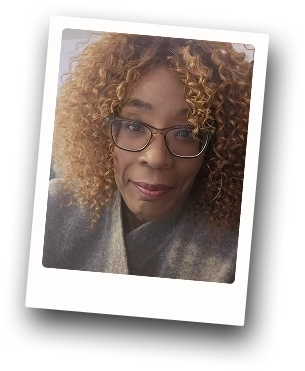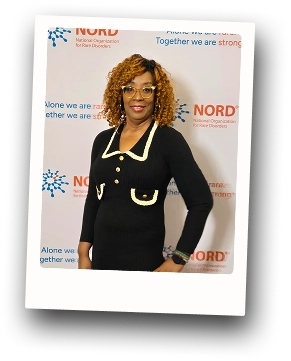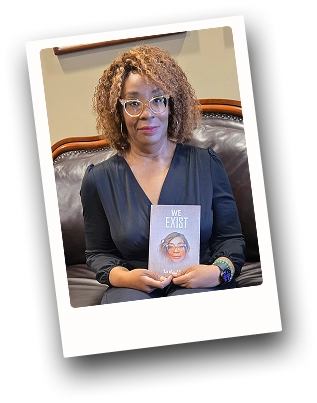Planning for HD chorea
can help you preserve
your independence
TANITA A.
Person with
Huntington's disease
Author and HD
Awareness Speaker
“You can still live your best life and find your new normal. It doesn't define who you are on the inside.”

“The involuntary movements started in my fingers and toes. It then progressed to my face, arms, upper trunk, and legs. I didn't know what it was. It’s like my body and mind were disconnected. Then the movements became even more pronounced.
Walking, taking showers, cooking, even going to the bathroom was difficult for me. People look at you differently. I have been perceived as a person who's been under the influence of alcohol and drugs due to my movements. People were scared of me because that's how bad I was shaking. I was so embarrassed. I was misdiagnosed for about two years. I was told that I didn't have HD because I'm Black. It was very discouraging. It took me another seven months until I finally found a doctor who tested me for HD. I was officially diagnosed with HD in February 2012.
After I found out what my diagnosis was, it was a relief to know I had a name for it. I now have a laundry list of medications that I take for HD and the chorea movements, but it’s worth it. Balancing everything all at once is quite a feat. My goal was to stop shaking, so that I could have a decent quality of life and maintain my independence. I take a medication twice daily to mask the choreatic movements. Without that medication, it feels like life is not worth living. Now, I follow rules, make sure I live a certain way, and as long as I do that, I’m fine. I can function.
“You're so much more than the disease. I'm proof that your life is not hopeless.”


You can still live your best life with HD chorea. I have a care team that I trust. I speak to my doctors for firsthand information, and I go to conferences or educational events to stay informed. That’s what really ignites my flame—I love going to meet other family members and other relatives of people who are caregivers of people with HD. They inspire me to keep going. I'm proud to say that I completed writing my memoir,
We Exist, to share my story for those who need it most. Everyone's story is unique, but to be able to hear from different perspectives and different lenses is important. You never know who your story will click with in a community.”